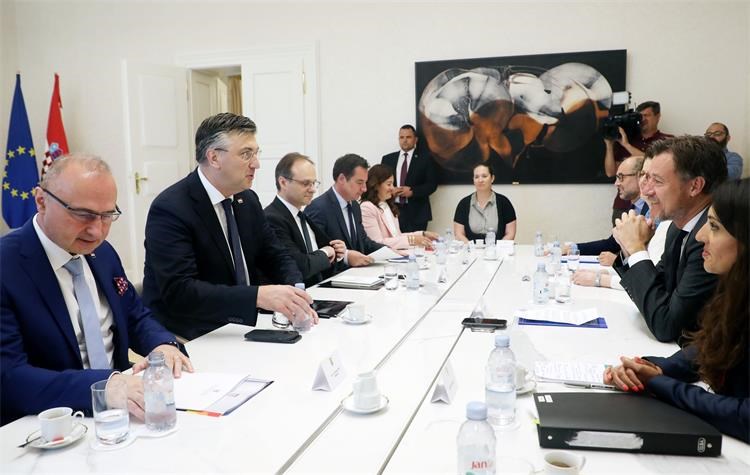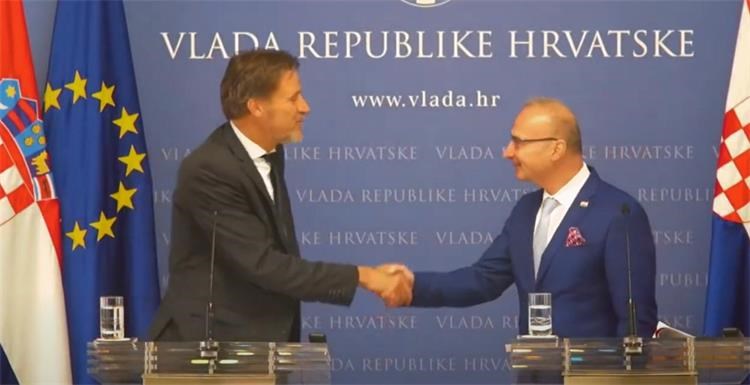- Published: 08.07.2022.
Croatia officially starts OECD membership negotiations
"We announce that at the meeting with OECD Deputy Secretary-General Ulrik Vestergaard Knudsen, we officially started the negotiations," said Grlić Radman, who participated in the meeting between Prime Minister Andrej Plenković and Knudsen in Government House.
"This is a historic moment for us today... after joining the Schengen Area, after joining the euro area, this will really be the 'icing on the cake," he said addressing the media.
Knudsen agreed with him that this is a historic moment and said that Croatia is doing this in order to create a better life for its citizens.
Today is a really historic day. We have been waiting for this moment for quite a long time, and it follows the important decision of the OECD Council on 25 January this year and then the ministerial meeting a little less than a month ago, when it was finally agreed to open accession negotiations with five countries, including Croatia, he said.
According to Knudsen, over the years Croatia has become one of the closest partners of the OECD and is trying to harmonise its policy with the standards and best practices of that organisation.
A number of projects have already been implemented with the aim of enacting better policies for a better life for Croatian citizens, which is also the OECD's motto, he underscored.
The government has established an interdepartmental accession group headed by Grlić Radman, which includes representatives of the government, ministries and public bodies.
The accession process can support the national reform program and help the country to achieve its own goals faster, such as stimulating trade and investment, encouraging innovation, reducing inequality, improving the tax system, improving the efficiency of public administration and improving the effectiveness of education, health and labour market policies, Grlić Radman said.
Croatia will have the opportunity to exchange the best practices with the most developed countries in the world in a number of areas, from economic policy to environmental protection, he added.
According to Grlić Radman, membership in the OECD is a clear recognition that the country respects the highest global standards, that it is committed to the values of democracy and the rule of law, that it respects the principles of an open and transparent market economy, and that it shares the common goal of sustainable economic growth with other member states.
"We are optimistic about the accession process. We have a long way to go, but Croatia has the knowledge, experience and capacity to lead that process, and I believe in our success," Grlić Radman concluded.
Croatia received an invitation to open negotiations on 25 January and at the final meeting of the OECD at the ministerial level, held on 10 June, OECD member states adopted the OECD's Accession Plan for Croatia.
Text: Hina




